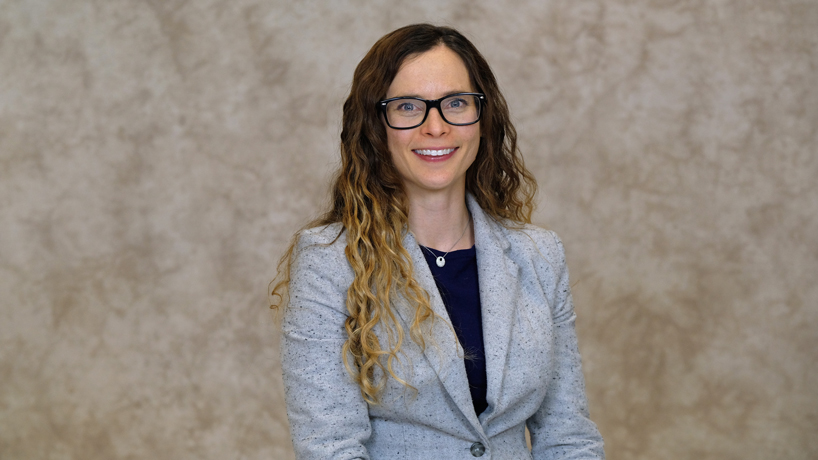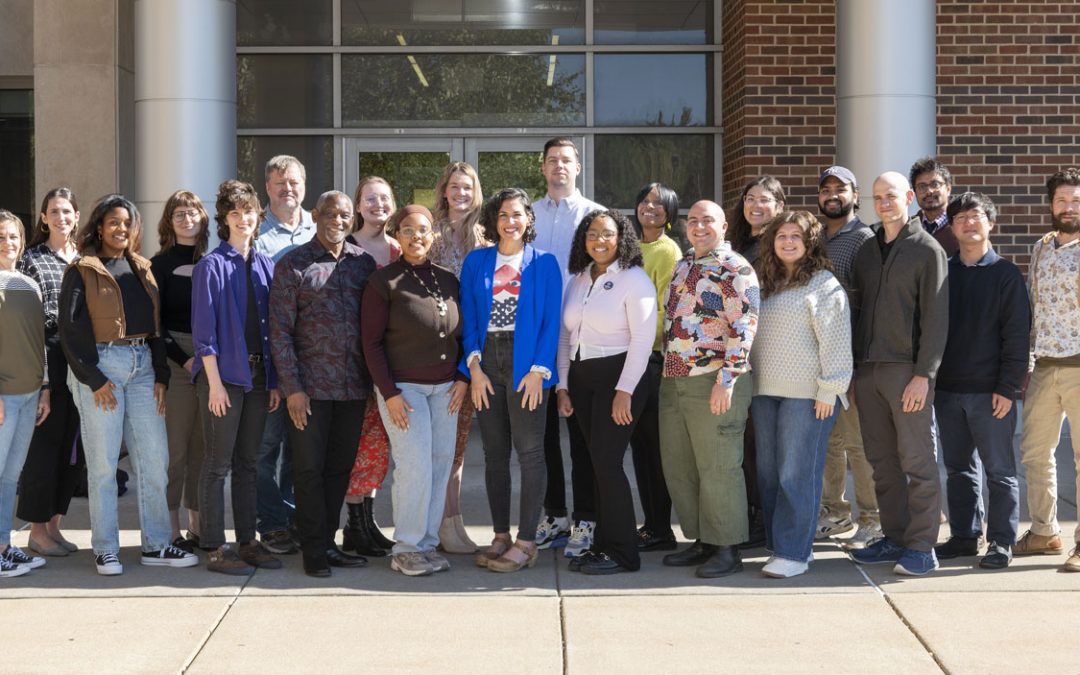
Rachel Wamser-Nanney is working with researchers at the University of Kentucky and Boston Children’s Hospital to research the negative effects of the COVID-19 pandemic on young children and their parents. (Photo by August Jennewein)
The COVID-19 pandemic has disrupted the routines of children across the country as many schools have moved classes online and canceled extracurricular activities.
Rachel Wamser-Nanney, assistant professor of psychology at the University of Missouri–St. Louis, is working with researchers at the University of Kentucky and Boston Children’s Hospital to see what psychological effects the pandemic is having on young children and their parents.
She noted the new study was close to her as a parent of young children.
“This is one study that I’m particularly passionate about because it’s focused on parents of young children,” Wamser-Nanney said. “They seem to be at increased risk for a variety of challenges.”
The study grew out of parallel research being conducted in Australia by Alexandra De Young, a research fellow at the University of Queensland. She is a leading researcher of traumatic stress in young children and their parents.
Wamser-Nanney has been conducting a separate, unrelated COVID-19 study with researchers at the University of Minnesota and Purdue University. Through that relationship, she became aware of De Young’s study and contacted her.
“The three of us then got together to host a parallel U.S. study, so lots of collaboration across the globe,” Wamser-Nanney said.
The study will focus primarily on parents who have at least one child under the age of 5. The researchers are particularly interested in children ages 3 to 5. Wamser-Nanney said children younger than 3 might be impacted by the stress of the household and changes in daycare routines. However, they don’t have the same cognitive awareness as older toddlers.
“We think that the 3-to-5 age group is going to be at a higher risk of mental health concerns,” she said. “The purpose of the study is really to understand the risk factors for parents, parents’ psychological concerns and children’s psychological concerns. It’s to understand the ways in which the pandemic has negatively impacted families.”
Children in that age group are often overlooked in stress and trauma research, which is something Wamser-Nanney and her colleagues want to correct.
“People have this misperception that younger children are not impacted by trauma, which is not true,” she said. “We really wanted to shed light that our younger children are negatively impacted.”
The researchers are still gathering participants, but they will be looking for things such as behavioral problems in children, emotional challenges and anxiety disorder symptoms.
Wamser-Nanney hopes to gather a diverse pool of participants.
“We’re looking to get a good number of community participants, particularly from underserved communities,” she said. “It seems like people who respond to Facebook or Twitter research requests tend to be whiter with higher education and income. A lot of them have professional degrees, which does not match the U.S. population.
“We’re making an effort to get a more community-based perspective, as COVID has shed light on public health disparities in terms of persons of colors having greater rates for contracting COVID and dying from COVID.”
The researchers will also follow up with participants three months and six months later to gauge longer-term effects. Wamser-Nanney said there could be a lasting impact for many, but children might be in a better position to rebound from the pandemic.
“We’re hopeful that maybe once things ‘get back to normal’ that it’ll take some of the air out of the mental health tire for the kids,” Wamser-Nanney said.
While the study is focused on negative effects of the pandemic, the researchers will also record any positive effects, such as increased family time. In the meantime, Wamser-Nanney is doing what she can as the co-chair of the American Psychological Association to help people cope with the pandemic.
“We have work groups for COVID that we started in May,” she said. “We are disseminating mental health resources through social media to connect people with psychologically based resources that we think will be helpful. We’re sharing things like how to navigate Halloween and the holidays, as well as resources such as books for talking about COVID with kids.”














